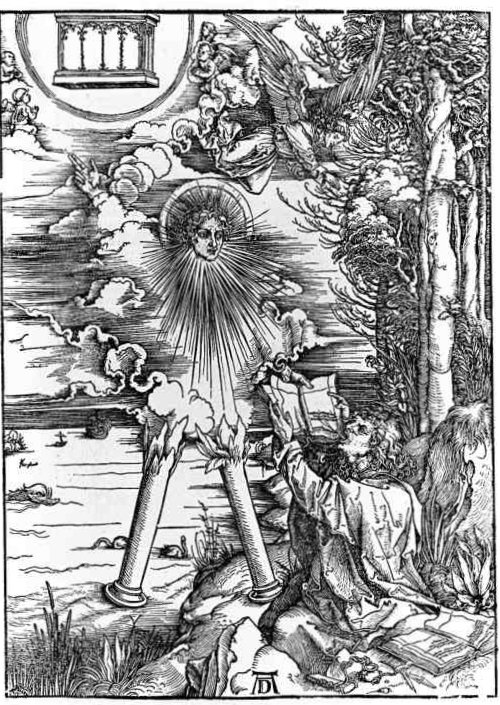Revelation 10:10
Share
κατέφαγον [katephagon] , John totally consumed or devoured it (cf. Mtt. Mat. 13:4; Mat. 23:14; John John 2:17).
St. John Swallows the Little Book

Although the initial taste was sweet, the result was bitterness. Rev. 10:9+, for we have no sense of taste in our stomachs.”2 All of God’s Holy Word is sweet (Ps. Ps. 19:10; Ps. 119:103), but especially the initial exposure to prophetic passages. Often, those who “eat” prophetic Scripture “sit on the edge of their seat” and focus on its quick fulfillment. Like a perpetual “sugar high,” it provides an initial surge of energy and motivation, but will never sustain like a balanced meal of God’s Word. The continual chasing after the latest prophetic conference, while superficially treating prophetic passages and never grasping important aspects of God’s character—His heart for the lost and His ultimate interest in restoration over judgment—is sure to lead to disillusionment and will shipwreck the faith of some. Critics of the Rapture rightfully point to those who continually overemphasize prophetic passages within a shallow framework of Scriptural understanding and are forever watching for Antichrist rather than Christ.
To almost all people, prophecy is sweet. Prophetic conferences draw larger audiences than virtually any other kind of conference. The voluminous sale of the more sensational prophecy books is another evidence of how “sweet” BIble prophecy has become to so many people. But if “sweetness” is all there is, then it is worth little. Every student of prophecy should have the second experience that John had: bitterness in the stomach. A knowledge of things to come should give every believer a burden for people. For the way of escape from these things is the Rapture, and the requirement to qualify for the Rapture is the acceptance of Messiah now. A true student of prophecy will not simply stop with the knowledge of things to come. Rather this knowledge will create the strong burden to preach the gospel to others and thereby give them a way of escape.3
The healthy saint is not sustained by hype, be it prophetic or charismatic, but seeks to know Christ through His Word and to make Him known with compassion and sensitivity—as Jesus walked in the gospels. The balanced study of God’s Word brings a burden for the lost and a growing realization of the destiny of those who fail to respond to God’s gracious offer. The desire to see God quickly judge is mitigated by a desire to see His grace prevail. Amos responded to those who desired the Day of the Lord:Woe to you who desire the day of the LORD! For what good is the day of the LORD to you? It will be darkness, and not light. It will be as though a man fled from a lion, and a bear met him! Or as though he went into the house, leaned his hand on the wall, and a serpent bit him! Is not the day of the LORD darkness, and not light? Is it not very dark, with no brightness in it? (Amos Amos 5:18-20)
Notes
1 Albrecht Durer (1471 - 1528). Image courtesy of the Connecticut College Wetmore Print Collection.
2 Monty S. Mills, Revelations: An Exegetical Study of the Revelation to John (Dallas, TX: 3E Ministries, 1987), Rev. 10:9.
3 Arnold G. Fruchtenbaum, The Footsteps of Messiah, rev ed. (Tustin, CA: Ariel Ministries, 2003), 243.